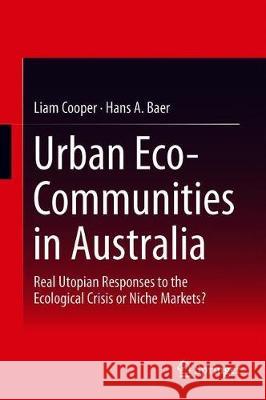Urban Eco-Communities in Australia: Real Utopian Responses to the Ecological Crisis or Niche Markets? » książka
topmenu
Urban Eco-Communities in Australia: Real Utopian Responses to the Ecological Crisis or Niche Markets?
ISBN-13: 9789811311673 / Angielski / Twarda / 2018 / 225 str.
Urban Eco-Communities in Australia: Real Utopian Responses to the Ecological Crisis or Niche Markets?
ISBN-13: 9789811311673 / Angielski / Twarda / 2018 / 225 str.
cena 191,40 zł
(netto: 182,29 VAT: 5%)
Najniższa cena z 30 dni: 191,40 zł
(netto: 182,29 VAT: 5%)
Najniższa cena z 30 dni: 191,40 zł
Termin realizacji zamówienia:
ok. 20 dni roboczych.
ok. 20 dni roboczych.
Darmowa dostawa!
Real Utopian Responses to the Ecological Crisis











